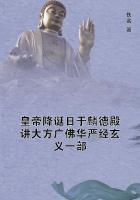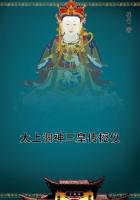SOCIAL AND INDIVIDUAL ASPECTS OF MINDMIND AN ORGANIC WHOLE -- CONSCIOUS AND UNCONSCIOUS RELATIONS-- DOES SELF-CONSCIOUSNESS COME FIRST? COGITO, ERGO SUM -- THE LARGERINTROSPECTION -- SELF-CONSCIOUSNESS IN CHILDREN -- PUBLIC CONSCIOUSNESSMIND is an organic whole made up of cooperating individualities, in somewhat the same way that the music of an orchestra is made up of divergent but related sounds.No one would think it necessary or reasonable to divide the music into two kinds, that made by the whole and that of particular instruments, and no more are there two kinds of mind, the social mind and the individual mind.When we study the social mind we merely fix our attention on larger aspects and relations rather than on the narrower ones of ordinary psychology.
The view that all mind acts together in a vital whole from which the individual is never really separate flows naturally from our growing knowledge of heredity and suggestion, which makes it increasingly clear that every thought we have is linked with the thought of our ancestors and associates, and through them with that of society at large.It is also the only view consistent with the general standpoint of modern science, which admits nothing isolate in nature.
The unity of the social mind consists not in agreement but in organization, in the fact of reciprocal influence or causation among its parts, by virtue of which everything that takes place in it is connected with everything else, and so is an outcome of the whole.Whether, like the orchestra, it gives forth harmony may be a matter of dispute, but that its sound, pleasing or otherwise, is the expression of a vital cooperation, cannot well be denied Certainly everything that I say or think is influenced by what others have said or thought, and, in one way or another, sends out an influence of its own in turn.
This differentiated unity of mental or social life, present in the simplest intercourse but capable of infinite growth and adaptation, is what I mean in this work by social organization.It would be useless, I think, to attempt a more elaborate definition.We have only to open our eyes to see organization; and if we cannot do that no definition will help us.
In the social mind we may distinguishery roughly of courseonscious and unconscious relations, the unconscious being those of which we are not aware, which for some reason escape our notice.A great part of the influences at work upon us are of this character: our language, our mechanical arts, our government and other institutions, we derive chiefly from people to whom we are but indirectly and unconsciously related.The larger movements of societyhe progress and decadence of nations, institutions and racesave seldom been a matter of consciousness until they were past.And although the growth of social consciousness is perhaps the greatest fact of history, it has still but a narrow and fallible grasp of human life.
Social consciousness, or awareness of society, is inseparable from self-consciousness, because we can hardly think of ourselves excepting with reference to a social group of some sort, or of the group except with reference to ourselves.The two things go together, and what we are really aware of is a more or less complex personal or social whole, of which now the particular, now the general, aspect is emphasized.
In general, then, most of our reflective consciousness, of our wide-awake state of mind, is social consciousness, because a sense of our relation to other persons, or of other persons to one another, can hardly fail to be a part of it.Self and society are twin-born, we know one as immediately as we know the other, and the notion of a separate and independent ego is an illusion.
This view, which seems to me quite simple and in accord with common-sense, is not the one most commonly held, for psychologists and even sociologists are still much infected with the idea that self-consciousness is in some way primary, and antecedent to social consciousness, which must be derived by some recondite process of combination or elimination.I venture, therefore, to give some further exposition of it, based in part on firsthand observation of the growth of social ideas in children.
Descartes is, I suppose, the best-known exponent of the traditional view regarding the primacy of self-conscious--ness.Seeking an unquestionable basis for philosophy, he thought that he found it in the proposition "I think, therefore I am" (cogito, ergo sum).This seemed to him inevitable, though all else might be illusion." I observed," he says, "that, whilst I thus wished to think that all was false, it was absolutely necessary that I, who thus thought, should be somewhat; and as I observed that this truth, I think, hence I am, was so certain and of such evidence that no ground of doubt, however extravagant, could be alleged by the sceptics capable of shaking it, I concluded that I might, without scruple, accept it as the first principle of the philosophy of which I was in search."
From our point of view this reasoning is unsatisfactory in two essential respects.In the first place it seems to imply that "I"-consciousness is a part of all consciousness, when, in fact, it belongs only to a rather advanced stage of development.In the second it is one-sided or "individualistic" in asserting the personal or "I" aspect to the exclusion of the social or "we" aspect, which is equally original with it.
Introspection is essential to psychological or social insight, but the introspection of Descartes was, in this instance, a limited, almost abnormal, sort of introspection 梩hat of a self-absorbed philosopher doing his best to isolate himself from other people and from all simple and natural conditions of life.The mind into which he looked was in a highly technical state, not likely to give him a just view of human consciousness in general.















